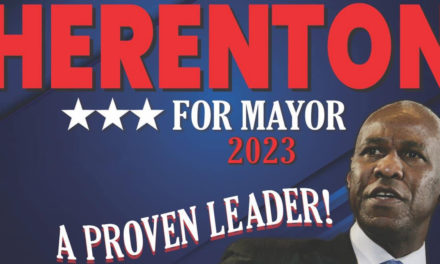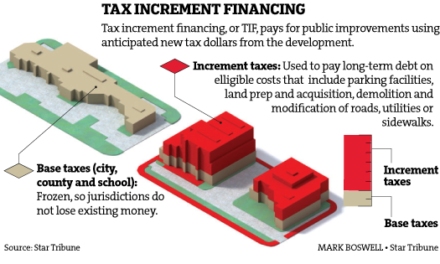One of the most puzzling – if not self-destructive – aspects of local political behavior is seen regularly in suburban elected officials who seem to believe that they can pursue political advantage with rhetoric and positions that demean Memphis as if their districts’ futures aren’t wholly dependent on the city’s health.
Then again, that statement requires some clarification.
First, Shelby County Commissioner Terry Roland of Millington, once ridiculed as unsophisticated in his grammar, his politics, and his positions, has evolved into one of county government’s most reasonable voices (possibly the effect of Steve Mulroy and Henri Brooks no longer acting as his provocateurs on the county board of commissioners).
Second, the anti-Memphis attitude also seems to infect some state and county officials who actually represent districts within Memphis itself, but who put party purity or their personal political ambitions ahead of smart policy.
Our Own Deniers
Third, these overt anti-Memphis suburban officials do not generally include those elected for municipal governments. On balance, the town mayors understand the complexities of making the revenues and expenditures work and of balancing the key services needed by their citizens, and they get little political currency from beating up Memphians. Except for some fear-mongering that was offered up as they were working hard to create their own school districts (a process which included overly rosy financial projections – as we noted at the time – that are now being met with the harsh realities of property tax increase proposals), the town mayors and aldermen largely don’t engage in the kind of rhetoric that is so common from their county and state colleagues.
Sadly, much of the anti-urban, anti-Memphis attitudes in the Capitol stem from venomous comments made by suburban and East Memphis legislators.
These people are like our own global warming deniers. Despite all evidence to the contrary, they soldier on with positions that pretend like there is a logic model that supports them and that the fates of their constituents aren’t inextricably tied to the city they so willingly attack.
We were thinking about this this week as the National Association of Counties (Shelby County Government is a member) issued a warning about how Shelby County’s economic recovery lags behind its peer counties.
Shelby County’s Economic Lags
In the report, NACo measured four economic measures: job totals, unemployment rates, economic outputs (gross domestic product), and median home prices, and in every one, when compared to the performance of large counties, Shelby County is vastly underperforming.
From 2001-2014, jobs growth rate is down 1.4%, the economic output growth rate is a meager 0.1%, and median home prices rose 7.5% (compared to the large county average of 32%). In addition, the annual pay growth rate is in the negative, down 0.6%.
The source of the economic softness is reflected clearly in the top five specialized industries, which are concentrated in low-wage, low skills sectors: Couriers and messengers, 5.6% share of county economic input ($5.2 billion); miscellaneous manufacturing, 2% ($1.1 billion); financial investment services, 1.2% ($675.6 million); warehousing, 1% ($567.4 million); and transportation support, 0.7% ($414.6 million).
In all of the categories, Shelby County has been stumbling since 2006-7. That’s when the rate of jobs growth peaked, when the rate of growth for economic output peaked, when median home prices grew at their highest rate, and when the change in the unemployment rate was at its lowest.
Anomalies
Because of its larger tax base and newer properties in the mix, Shelby County Government has weathered its budgetary challenges with greater ease than City of Memphis, but as this community’s slow recovery economy continues, no one in county government can much longer delude themselves into thinking that its fortunes are not directly shaped by the fortunes of Memphis itself.
It is a strange anomaly of our local news coverage that county government perpetually gets a pass when troubling trends lines are headlined or spotlighted. Whether it is poverty, child poverty, economic growth, or literacy, the news media turn en masse to City Hall for answers and explanations, and it’s a tendency likely to get even worse in the coming year with city elections approaching.
It’s a strange phenomenon since it’s Shelby County Government that has the larger budget, the higher tax rate, and the broader tax base. And it’s county government that is a political subdivision of state government.
We predict that if county officials are asked what they do to address the problems in Memphis, where 70% of its constituents live, they would default to their funding for education. But that really doesn’t count, because it’s not something where county government has any choice. State law mandates that it fund public education.
Then again, it seems like county government operates less from a vision than from the need to provide services required by law or tradition. In the years after the 1976 restructuring of county government to add a mayor that replaced a three-person administrative structure, it was not unusual for the county mayor to set the local agenda – in fact, more often than not, it was the county mayor driving the local agenda.
When Shelby County Was A Leader
It was former Shelby County Mayor Bill Morris that put recruitment of international business on the agenda, who led the creation of the hotel-motel tax to fund a more robust tourism bureau, who created the area’s first anti-poverty program, who rolled out a quality of life agenda, who called for the first regionalism plan, who prepared a livability agenda, among other things.
In a March 11, 2010, blog post, we wrote: “The grand experiment that began 32 years ago to reinvent Shelby County Government as an urban government is coming to a close…Thirty-two years and $2 billion in debt later, Shelby County government is down-shifting and the structure once hailed as a ‘twenty-first-century county government’ is destined to atrophy.”
We had hoped to be proven wrong since the creative tension between City of Memphis and Shelby County Governments had worked well and the political competition had been good for the citizens of Memphis in inspiring new ideas and new initiatives.
But these days, county government has returned to the style of its pre-Restructure days when it played it safe, did what it was required to do and little more, and when its ambitions were modest at best. More troubling was that the government was much more focused outside of Memphis although even more of the county’s population was inside the city in those days.
It was an interesting time and it’s hard to think of an anecdote that sums it up better than when the three elected administrators called on their budget manager one day to say a prayer to open their regular business meeting. He said: “Lord, forgive them for they know not what they do.”
Wanted: A County Agenda
We’re a long way from those days, and more should be expected of Shelby County Government when the problems of Memphis need assertive action and it is needed to be a full, active partner leading new initiatives and providing innovative ideas.
There is no lack of things that county government could be doing if it had a more expansive view of its role. For example, knowing that public transit is a regional issue, why should county government not be engaged in discussions about how to connect worker rich sections of our community with the jobs rich locations of our community?
Knowing how important a stabilized, growing Memphis could be to its revenues, why can’t Shelby County Government be a more powerful voice for smarter growth and for exploring ideas that will mitigate the damaging impact of I-269 and the “build it and they will drive” projects that dominate the transportation agenda?
Acknowledging how county government devastated the planning function with severe cuts to staff and budgets and how the lack of a comprehensive plan has contributed to so many of the problems facing this community, how about acting as a leading advocate for better planning? And while it’s at it, how about reforming an MPO that emphasizes freight at the expense of people, roads at the expense of quality of life, and operating on the theory that every road is a good road?
Perhaps, in answering these questions, Shelby County Government could prove that “the grand experiment” doesn’t have to come to an end. At least not yet.







Tell the truth and shame devil! Well said. What these people need to realize is that if Memphis dies—they all die. Every last one of their communities. It is particularly nauseating to hear this anti-Memphis rhetoric when most of these people WORK and make their LIVELIHOODS in Memphis. But you don’t miss your water until your well runs dry, as they say.
the ‘planning department’ was almost exclusively funded by building permit fees for the last few decades. When development suffered cardiac arrest, the permits dried up, and there was no need at the time to carry dozens of ‘planners’, drafters, ‘building inspectors’ et. al. with little or nothing to do what with the political decision that ‘them planners only stir up the residents who show up at our committee meetings expecting us to DO something’.
So the staff was emasculated. Nobody noticed much change.
I-269 loop is nearly finished. The munis have their own schools and are in most cases (Lakeland Playland a humorous exception) planning for fiscal support in the near and far term.
And soon we won’t have to drive to Foley to go to a huge outlet mall.
Life goes on. Quit whining.
Anonymous:
The building permit fees did not pay for the salaries of the planners in the planning department. They were paid from the general fund and were part of the city-county budgets. They were eliminated as county budgets were reduced.
You seem to be caught up in your own opinion so much that you can’t hear anyone else’s. Shelby County Government has a responsibility to consider how the poor policy decisions that it’s made over the past 20 years can be mitigated. As we wrote in December, there are 10 major decisions that created the issues that exist today, and most of them were made by county government. County government has a duty to set out a clear agenda to support and help the city whose economy is at its core.
It’s true, Memphis is a punching bag for politicians of all parties and jurisdictions, even those representing the city itself. Memphis is also the butt of so many jokes, especially in the news media.